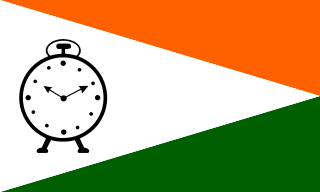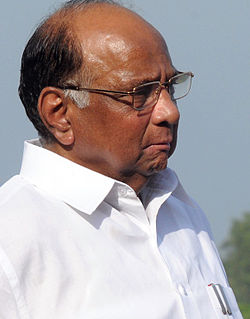This article does not cite any sources .(December 2009) (Learn how and when to remove this template message) |
Indian National Congress (Socialist) | |
|---|---|
| Founder | Sharad Govindrao Pawar Priya Ranjan Dasmunsi A.K. Antony Sarat Chandra Sinha |
| Founded | 1980 |
| Split from | Indian National Congress |
| Youth wing | Indian Youth Congress (Socialist) |
| Colours | Black |
| Alliance | Congress+ (1980-1987) Left Democratic Front (2007-present) |
Indian Congress (Socialist) (IC(S)) also known as Congress (Secular) was a political party in India between 1978 and 1986. The party was formed through a split in the Indian National Congress. Initially the party was known as the Indian National Congress (Urs) and was led by D. Devraj Urs. It broke away from the parent party in 1978 following Indira Gandhi's drubbing in the 1977 General Elections. Urs took with him many legislators from Karnataka, Kerala, Maharashtra and Goa including future Union Ministers and Chief Ministers A.K. Antony, Sharad Pawar, Dev Kant Baruah, Priyaranjan Das Munshi, Sarat Chandra Sinha and K. P. Unnikrishnan.

India, also known as the Republic of India, is a country in South Asia. It is the seventh largest country by area and with more than 1.3 billion people, it is the second most populous country as well as the most populous democracy in the world. Bounded by the Indian Ocean on the south, the Arabian Sea on the southwest, and the Bay of Bengal on the southeast, it shares land borders with Pakistan to the west; China, Nepal, and Bhutan to the northeast; and Bangladesh and Myanmar to the east. In the Indian Ocean, India is in the vicinity of Sri Lanka and the Maldives, while its Andaman and Nicobar Islands share a maritime border with Thailand and Indonesia.

The Indian National Congress(
When Sharad Pawar took over the party presidency in October 1981, the name of the party was changed to Indian Congress (Socialist) [1]
In 1986, Pawar and his party rejoined the Indian National Congress. [2]
One section led by Sarat Chandra Sinha broke away from IC(S) in 1984 and formed a separate party known as Indian Congress (Socialist) - Sarat Chandra Sinha. This faction merged with Sharad Pawar's National Congress Party in 1999. [3]
Indian Congress (Socialist) – Sarat Chandra Sinha was a political party in India between 1984 and 1999. The party was formed through a split in the Indian Congress (Socialist), and was led by former Assam Chief Minister (1971–78), Sarat Chandra Sinha.

The Nationalist Congress Party (NCP) is a national level political party in India.
However, in Kerala, the residual faction of Indian Congress (Socialist) led by Kadannappalli Ramachandran still exists and is a part of the Left Democratic Front. In 2007, Democratic Indira Congress (Left) led by M. A. John merged with this party.

Kadannappalli Ramachandran is an Indian politician and President of Congress (S).

Left Democratic Front (LDF) is a coalition of left-wing political parties in the state of Kerala, India. It is one of the two major political coalitions in Kerala, the other being the United Democratic Front each of which have been in power alternatively for the last two decades. LDF won the May 2016 election, and is now in power. The coalition consists of Communist Party of India (CPI), Communist Party of India (Marxist) and variety of other smaller parties.






